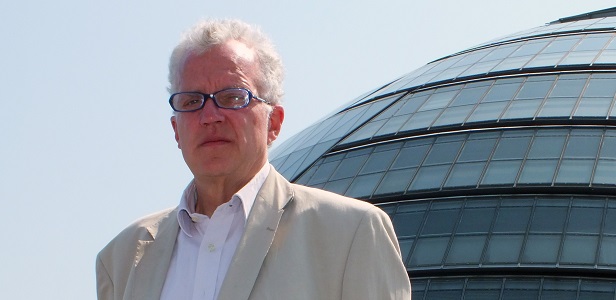We hear little of some of the buzzwords of Labour’s early period in government such as integrated transport and ‘joined up thinking’ That is perhaps because there is a total lack of either in many areas of government policy, notably transport. In my capacity as a cyclist and board member of Cycling England, and its various predecessor bodies, I have been struggling for much of the past decade to persuade train companies to be more friendly towards cyclists and to suggest that ministers set a better framework to achieve this all too obviously laudable aim.
After much lobbying, the Strategic Rail Authority did develop a cycling policy and, after a fierce behind the scenes row over a first draft that was utterly useless, the eventual document had a positive tone and even set out some vague commitments: ‘the SRA aspires to see 95 per cent of rail journeys originate from stations with adequate cycle parking facilities within the next five years. A fund established by the Department for Transport to improve cycle parking, at around 200 high priority stations will begin this process.’ It may have only been an aspiration, but at least it was a positive statement that combining cycling and rail travel is to be encouraged.
Unfortunately the SRA went AWOL soon after that and the Department has yet to adopt the policy, though there are positive signs that the minister, Derek Twigg, who has responsibility for both cycling and railways will soon endorse it and, indeed, try to build on it. So it was rather a shock to discover that the new St Pancras station, with its high speed line direct to the Channel Tunnel and beyond, was not designed from the outset to have cycle parking facilities. The good people at Transport for London were rather surprised by this too, and started negotiating with Network Rail over the issue.
And here we get into the lack of joined-up thinking on the provision of such a basic facility, especially given that cycling is enjoying a fantastic renaissance in London with numbers doubling in the past five years. Network Rail say that in its contract with government the ‘not for profit’ company has the duty to act commercially. Its line was that since there is no revenue from cycle parking, and it takes up space that otherwise could more productively to house a Burger King or Knick Knacks for Us, then ‘sorry no can do’. On that basis, why have any empty platform space at all? Or even platforms?
Transport for London has therefore been offered space to rent somewhere underneath the station, and therefore very inconvenient for cyclists. But why should a taxpayer funded body pay the notionally privatised but heavily government funded Network Rail to provide a basic service such as cycle parking? Not surprisingly, the new commissioner, Peter Hendy, is rather exercised about this and hopes to make Network Rail see sense.
But responsibility lays at the door of ministers. Given the renewed interest in cycling with all its attendant health and environmental advantages, surely the government could stump up the few million quid that would be enough to improve cycle parking at stations that need it and also ensure that Network Rail be prevailed upon to be a bit more flexible?
There is too, the issue of taking bikes on trains. .The Association of Train Operating Companies has just published its new leaflet on bikes and trains but there is no mention of the fact that there is a war going on out there over the carriage of bikes on trains Southern has recently clamped down on anyone taking a bicycle onto its network in the rush hour. Hitherto, while there was such a rule, its staff were instructed to use their discretion so that people could take bikes on the many trains which did have room at those times. Again, a little bit of ministerial banging of heads together could pave the way to a solution with a return to flexibility and common sense. Did I hear those words ‘integrated transport’ and ‘joined up thinking’ echoing around the Department?
